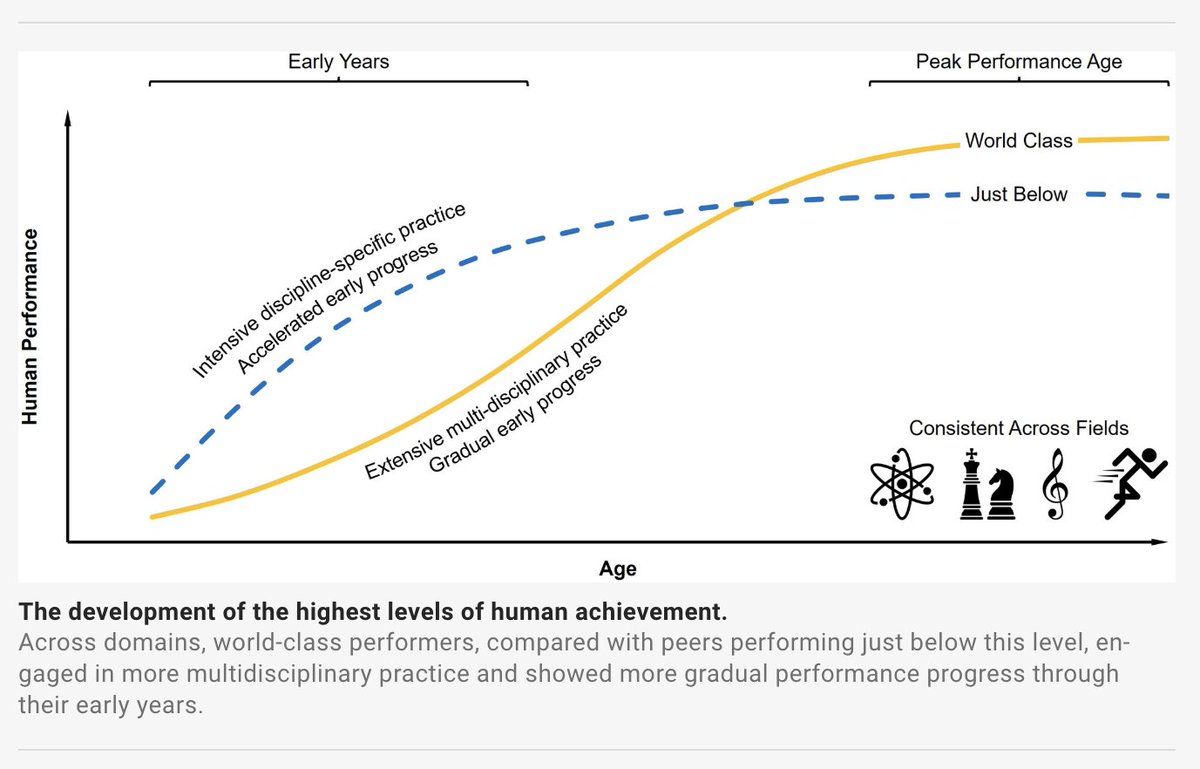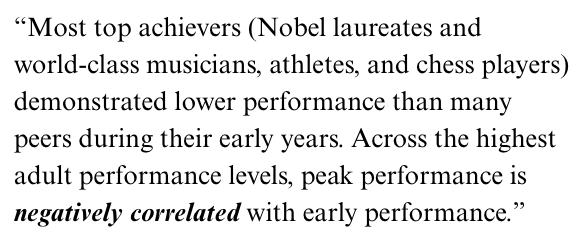THREAD: Here are 10 insights I've learned over the last 5 years coaching executives, entrepreneurs, and athletes.
On sustainable success, peak performance, and career advice:
👇👇
On sustainable success, peak performance, and career advice:
👇👇
You've got to put yourself out there. You can't be the person who comes off as too cool to care but is actually just afraid.
Caring deeply makes you vulnerable. Why? Because there's a good chance things don't go exactly your way. But caring deeply is also the key to a rich life.
Caring deeply makes you vulnerable. Why? Because there's a good chance things don't go exactly your way. But caring deeply is also the key to a rich life.
Trying to be "balanced" does not work.
When you care deeply about something it draws you in. That's the point. You don't need to force some kind of proportionate allocation of your life.
Aim for the self-awareness to PRIORITIZE and CHOOSE how you spend your time and energy.
When you care deeply about something it draws you in. That's the point. You don't need to force some kind of proportionate allocation of your life.
Aim for the self-awareness to PRIORITIZE and CHOOSE how you spend your time and energy.
Find and follow your passion is a load of crap.
Expecting to find something where everything clicks from the get go and is all good from there on out is a surefire way to never be happy.
Pursue your interests. Stay curious. Hone a craft. Passion emerges over years, not seconds.
Expecting to find something where everything clicks from the get go and is all good from there on out is a surefire way to never be happy.
Pursue your interests. Stay curious. Hone a craft. Passion emerges over years, not seconds.
Wherever you are, the goal post is always 10 yards down the field.
If you develop a mindset, "If I just do this, or just accomplish that, THEN I'll arrive," you're in for trouble. There is no arriving. The human brain didn't evolve for it. Enjoy the process. Be where you are.
If you develop a mindset, "If I just do this, or just accomplish that, THEN I'll arrive," you're in for trouble. There is no arriving. The human brain didn't evolve for it. Enjoy the process. Be where you are.
Everyone wants to be SUCCESSFUL. But few people take the time and energy to define the success they want. As a result, they spend most, if not all, of their lives chasing what society superimposes on them as success.
Define your values. Craft a life around them. THAT is success.
Define your values. Craft a life around them. THAT is success.
Stress + Rest = Growth.
-Too much of the former not enough of the latter you get injury, illness, burnout.
-Too much of the latter not enough of the former you get complacency, stagnation.
This equation is universal. It holds true for individual and organizational growth.
-Too much of the former not enough of the latter you get injury, illness, burnout.
-Too much of the latter not enough of the former you get complacency, stagnation.
This equation is universal. It holds true for individual and organizational growth.
Read as much as you can.
Books are the best bargain there is. There is no better place to get a deep distillation of insights and wisdom.
I've helped 4-time Olympians move on from sport simply by recommending books. I've helped founders navigate rough waters the same way.
Books are the best bargain there is. There is no better place to get a deep distillation of insights and wisdom.
I've helped 4-time Olympians move on from sport simply by recommending books. I've helped founders navigate rough waters the same way.
Surround yourself wisely.
The people with whom you surround yourself shape you. We are all mirrors reflecting onto one another. Ancient wisdom traditions point toward this. Latest research points toward this.
We think too much about individuals, not enough about communities.
The people with whom you surround yourself shape you. We are all mirrors reflecting onto one another. Ancient wisdom traditions point toward this. Latest research points toward this.
We think too much about individuals, not enough about communities.
Marry self-discipline with self-compassion.
If you are a hard-charging, Type-A "pusher," that's great! But you better work on being kind to yourself too.
It is hard to be a human. It is hard to care deeply. You've got to learn to love yourself and create space for your pain.
If you are a hard-charging, Type-A "pusher," that's great! But you better work on being kind to yourself too.
It is hard to be a human. It is hard to care deeply. You've got to learn to love yourself and create space for your pain.
Don't forget to experience joy.
This sounds self-evident, but it's not. The risk of being super focused on progress and growth is that you get so caught up in where you are going you forget to relish moments along the way. No Zen on mountain tops. Only Zen you bring up there.
This sounds self-evident, but it's not. The risk of being super focused on progress and growth is that you get so caught up in where you are going you forget to relish moments along the way. No Zen on mountain tops. Only Zen you bring up there.
If you want more evidence-based content on peak performance, sustainable success, and career advice give me a follow. I post similar ideas and insights daily and threads like this 2x/week.
• • •
Missing some Tweet in this thread? You can try to
force a refresh








